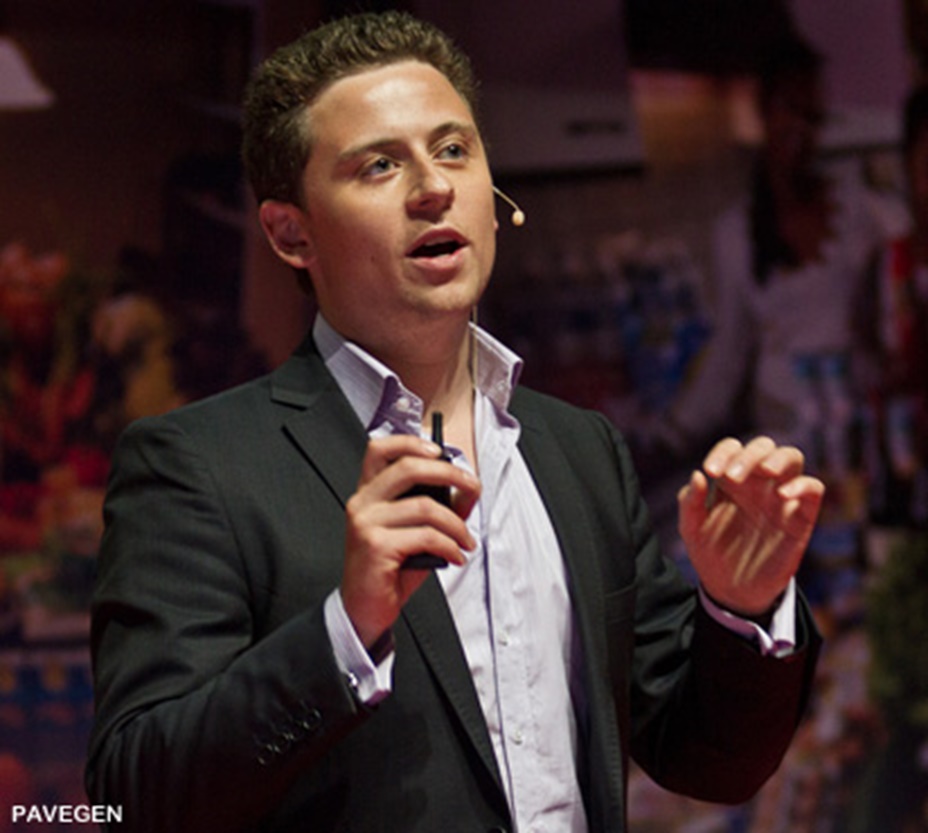LAURENCE KEMBALL-COOK is the CEO & Founder of technology company Pavegen, which developed a type of tile that converts footprints into energy that can power various devices including lighting systems and advertising displays, among others. A recent Pavegen project saw the tech firm team with Royal Dutch Shell to install the world's first player-powered football field in Rio de Janeiro. The field features 200 tiles that work in tangent with solar panels to power six floodlights surrounding the pitch for up to 10 hours with a fully charged battery. Former footballer PELE attended the field's inauguration on Sept. 10. Kemball-Cook, 28, founded the company in '09 after studying industrial design and technology at Loughborough University. He spoke to SBD Global about being a young CEO, the challenges his company faces and his love of cycling.
On recent technological advances...
Laurence Kemball-Cook: The biggest change that we’ve seen is the uptake of viable clean energy solutions. People have really started to recognize it. I started in 2009, 2010, just after the fallout from the credit crunch. Times were hard back then, but now we’re seeing a resurgence in this area. Another big theme is smart cities are becoming something that’s actually real. A smart city is one where everything communicates with each other. Resources are used effectively and distributed in a way that can save the most amount of energy possible. I think we’re seeing that people are up for those kinds of deals and offerings. It’s definitely changing a lot. I learn something every day about our technology that I didn’t know the day before, even this long into it.
On Pavegen's biggest challenge...
Kemball-Cook: The big challenge for a company like ours, one is going to be getting people to understand the technology. We are creating industry, so that’s really difficult. Secondly, scaling a hardware business is difficult. We’ve all heard about WhatsApp going for a massive sale really quickly and taking over the world. But with hardware, you actually need a lot of funds to invest in the manufacturing of the product to get it right. So I think that’s a barrier to growth and growing really quickly, the investment needed to do that. And finally, finding the right team. I sit here today with a really strong team around me, but it takes a long time to find that team to allow us to deliver our goals.
On the company's early days...
Kemball-Cook: I started the company after university. I sat in my bedroom and I looked at how could I grow the technology from what was essentially just an idea. We had to do a few things. It was things like breaking into building sites at nighttime and installing our products. From the nighttime installation at a building site, we would then take photos and talk about it as if it was a real installation. That's something that we had to do to allow us to get initial traction in the market. It’s almost called growth hacking. Growth hacking is a technique that technology startups use which uses creativity and analytical thinking and various social metrics to gain exposure through viral usage. I went into a school and installed it illegally. From installing it at the school, they actually ordered one the next day. We then raised some finance in 2010 that allowed us to take it from a bench prototype to a real prototype you could actually walk on. And then we worked really hard from there to slowly sell more products.
On the motivation behind those early installations...
Kemball-Cook: We installed it illegally in the building site, and we put it on our website the next day, saying, "Celebrating our latest installation." It was an installation, but it wasn’t a legal one. It allowed people to think that it was real. The biggest problem you have to take an idea and turn it into reality is persuading the market that it actually exists. There’s a lot of chicken and egg. People won’t invest unless you have sales, and people won’t buy unless you have investment, so it was a very tough middle ground.
On being a young CEO...
Kemball-Cook: I think that in the era we live in now, to respect the CEO, it’s not about their age. You’re seeing CEOs of some of the most successful companies being under 30. Obviously you look at Facebook and many others as examples of this. The key to managing it is to treat everyone like peers and not rule with an iron fist. It’s important to get in as a team and work with everyone on the same level as you and support a team to develop and flourish in the way that’s best for the company. There are challenges to the traditional model, but I think the world is coming around to it. If you looked 20 years ago, the majority of CEOs were over the age of 50. Now, if you look at it by market capitalization, I’m sure that number has decreased drastically thanks to some of the really big companies run by very young guys and girls.
On his favorite sports...
Kemball-Cook: I like soccer. I support Chelsea. It’s great to see a London team, it’s like a hub of the community here, being right next to where everyone lives. I cycle a lot, I do a lot of competitive cycle racing across Europe and through any mountain range I can find. For me, I think sport is a way to focus your mind after a long day at the office and to really think about things and look at the world in a different way. I definitely believe in sport being a way to cleanse one’s soul, if you like, from a crazy existence.
Hangin' With runs each Friday in SBD Global.




